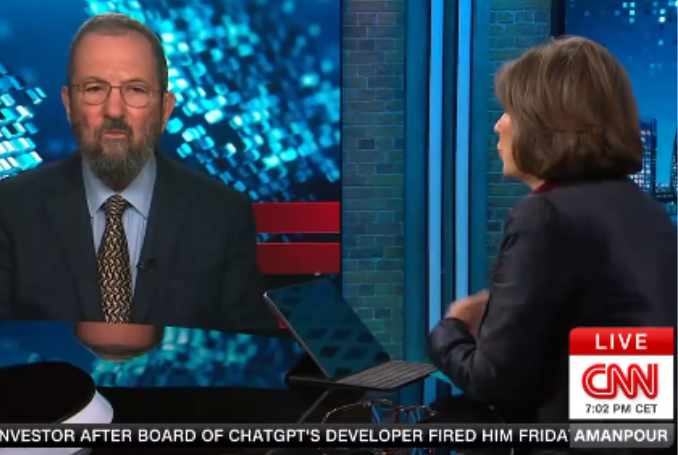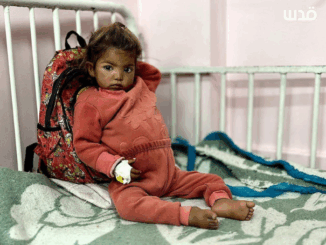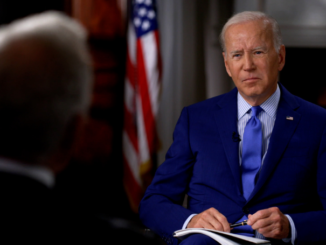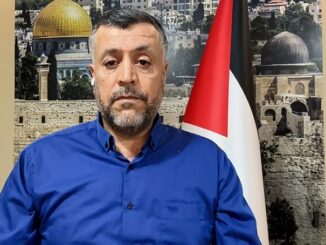
At a rally in Tel Aviv last month, Barak reportedly urged thousands of protesters to engage in “nonviolent civil noncompliance.”
A police investigation has been launched into former prime minister Ehud Barak over comments he made calling for widespread protests and civil disobedience in Israel, according to media reports.
According to the Times of Israel and the JNS news website, Israeli police indicated in a letter to right-wing activist Shai Glick, who filed a complaint against Barak, police indicated that a probe had been opened into the matter.
Glick is the CEO of B’tsalmo, an organization that amongst others, believes in “the fight against delegitimization of Israel” and “the fight against organizations which undermine the existence of Israel,” according to its website.
The JNS report said Israeli prosecutors were “due to make a decision on whether to prosecute former Prime Minister Ehud Barak on new allegations of incitement and sedition.”
Ehud Barak former Prime Minister of Israel on how Netanyahu boosted Hamas to prevent a Palestinian state. pic.twitter.com/geUXUjMvFB
—
??????? ?????
(@PatriotSt0rm17) August 3, 2024
‘Selective Enforcement’
At a rally in Tel Aviv last month, Barak reportedly urged thousands of protesters to engage in “nonviolent civil noncompliance.”
He said that when the Israeli parliament (Knesset) returned from its Summer break, “the revolt must be extended to a mass strike around the parliament together with opposition leaders until the government falls.”
Glick is reported by The Times of Israel as saying “The reality in which left-wing people repeatedly incite and rebel and are not even called in for questioning while right-wing people have been sent to prison for much lesser things is delusional and shows selective enforcement.”
He demanded that “the State Attorney’s Office immediately order an indictment against Ehud Barak.”
‘Serious Crisis’
In an article for the Israeli newspaper Haaretz in June, Barak wrote that Israel was at “the most serious and dangerous crisis in the country’s history”.
He said Israel could not “afford any more mistakes.”
‘Closer to Total Failure’ – Barak Says ‘Absolute Victory’ is Empty Slogan
“We need to immediately replace this failed government by setting an agreed date for elections, or, alternatively, by holding a constructive no-confidence vote,” he wrote, warning against the possibility of having to fight on multiple fronts.
In February, he told Army Radio that “30,000 citizens should besiege the Knesset for three weeks day and night,” adding that when the state is “shut down,” Prime Minister Benjamin Netanyahu will realize that his time is over and that trust in him is “non-existent.”
According to the former prime minister, “failure to remove this government and its leader quickly will endanger Israel’s future and even its continued existence.”
Ongoing Genocide
Flouting a UN Security Council resolution demanding an immediate ceasefire, Israel has faced international condemnation amid its continued brutal offensive on Gaza since October 7.
Tel Aviv is also currently on trial before the International Court of Justice for genocide against Palestinians.
According to Gaza’s Ministry of Health, 39,624 Palestinians have been killed, and 91,469 wounded. Moreover, at least 11,000 people are unaccounted for, presumed dead under the rubble of their homes throughout the Strip.
Israel says that 1,200 soldiers and civilians were killed during the Al-Aqsa Flood Operation on October 7. Israeli media published reports suggesting that many Israelis were killed on that day by ‘friendly fire’.
Palestinian and international organizations say that the majority of those killed and wounded are women and children.
The Israeli war has resulted in an acute famine, mostly in northern Gaza, resulting in the death of many Palestinians, mostly children.
The Israeli aggression has also resulted in the forceful displacement of nearly two million people from all over the Gaza Strip, with the vast majority of the displaced forced into the densely crowded southern city of Rafah near the border with Egypt – in what has become Palestine’s largest mass exodus since the 1948 Nakba.
Later in the war, hundreds of thousands of Palestinians began moving from the south to central Gaza in a constant search for safety.
(The Palestine Chronicle)








